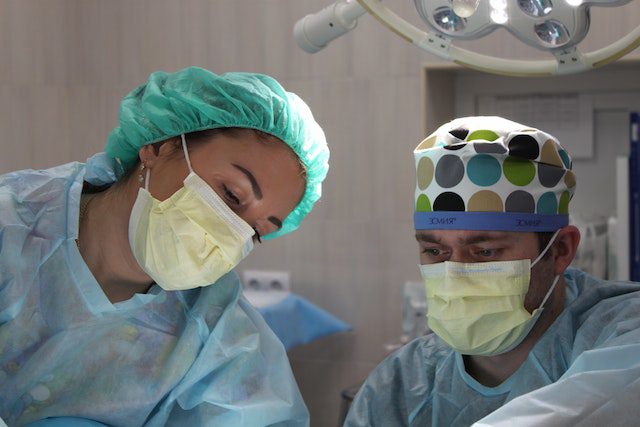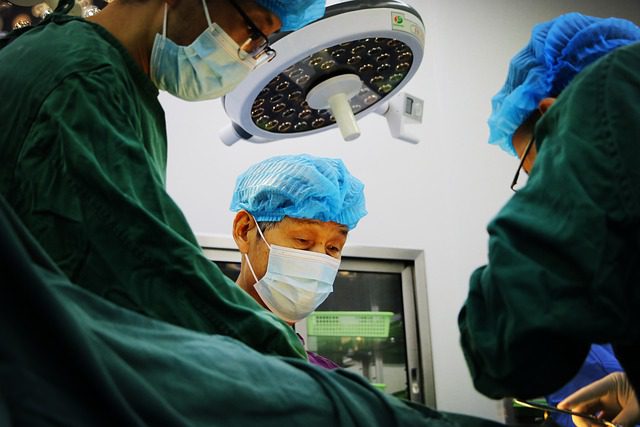Surgery glaucoma is a type of eye surgery that is used to treat the condition of glaucoma. Glaucoma is a term for a group of diseases that cause damage to the optic nerve, which can lead to vision loss and blindness. Surgery glaucoma has been used for many years as one of the most effective treatments in preventing or slowing down vision loss in those suffering from this condition. In this introduction, we will discuss the types of surgery available, how they work, and their potential risks and benefits.
Table of Contents
Types of Glaucoma
Glaucoma surgery is a group of eye diseases that can damage the optic nerve and cause vision loss. It is one of the leading causes of blindness in the United States and affects more than three million Americans. While there are many types of glaucoma, some common ones include primary open-angle glaucoma, angle-closure glaucoma, normal tension glaucoma, and congenital glaucoma.
Primary Open-Angle Glaucoma (POAG) is the most common type of glaucoma in adults over 40 years old. It occurs when fluid builds up in the front part of your eye and puts pressure on the optic nerve, which can lead to vision loss. POAG typically progresses slowly over time with no symptoms until the late stages, when vision may become blurred or hazy. Treatment includes medications such as eye drops to reduce fluid production or laser surgery to open blocked drainage channels in your eyes so fluid can drain out properly.
Angle-Closure Glaucoma (ACG) occurs when narrow angles between your iris (the colored part of your eye) and cornea block proper drainage from occurring, causing high amounts of pressure on your optic nerve and resulting in damage that can lead to vision.
Therefore, Glaucoma is a serious eye condition characterized by increased intraocular pressure, often requires prompt treatment, and the best laser eye surgery in London offers advanced techniques to manage this condition effectively.

Causes of Glaucoma
Glaucoma is an eye disorder that affects the optic nerve, causing vision loss and even blindness. It is a very serious condition that requires prompt treatment to prevent long-term damage to the eyes. Understanding the causes of glaucoma can help you better manage your condition and maintain healthy eyesight.
The most common cause of glaucoma is increased pressure in the eye, known as intraocular pressure (IOP). When the fluid in our eyes builds up, it increases IOP, which can cause damage to the optic nerve and lead to vision loss. This type of glaucoma is known as primary open-angle glaucoma, which accounts for 95 percent of all cases. Other types of glaucoma include angle-closure glaucoma (caused by a blockage in drainage channels), low tension or normal tension glaucoma (caused by normal levels of IOP), congenital or infantile glaucoma (present at birth) and pigmentary or uveitic glaucomas (caused by inflammation).
Symptoms of Glaucoma
Glaucoma is one of the leading causes of blindness in the world. It is a condition that occurs when there is too much pressure on the optic nerve, which can cause damage to your vision. While glaucoma may not always have obvious symptoms, it’s important to be aware of potential signs and to seek medical attention if you experience any changes in your vision. Here are some of the common symptoms associated with glaucoma:
1) Blurred Vision: Blurred vision or a decrease in peripheral (side) vision may be one of the first symptoms that someone notices when they have glaucoma. This is due to nerve damage caused by increased pressure on the optic nerve.
2) Halos Around Lights: People with glaucoma may see halos around lights or objects that seem brighter than normal as a result of their impaired vision.
3) Eye Pain and Headaches: People with glaucoma often experience eye pain and headaches due to increased pressure on the optic nerve, which can cause inflammation and irritation in nearby areas such as temples, cheeks, or forehead.
Diagnosis and Testing for Glaucoma
Glaucoma is a serious eye disease that affects millions of people worldwide, and it’s important to be aware of the diagnosis and testing process for this condition. Glaucoma occurs when the pressure in your eye rises due to an imbalance between fluid production and drainage. This increased pressure can damage your optic nerve, leading to vision loss or even blindness. Fortunately, if caught early enough, glaucoma can be managed with medications or surgery.
The first step in diagnosing glaucoma is a comprehensive eye exam by your doctor. During this appointment, they will use special instruments to measure the pressure inside your eyes as well as examine the health of your optic nerve for signs of damage from glaucoma. Your doctor may also perform dilation tests or visual field tests to check for any changes in peripheral vision that could indicate glaucoma.
If you are at risk of developing glaucoma due to age or family history, you may need additional tests such as imaging scans (such as OCT), which can help detect any changes in the shape or structure of your optic nerve that could indicate potential issues with glaucoma development.
Treatments for Glaucoma
Glaucoma is a condition that affects the optic nerve and can lead to permanent vision loss if left untreated. It is one of the leading causes of blindness worldwide, especially in people over 60. There are several treatments for glaucoma, including medications, laser therapy, surgery, and alternative therapies.
Medications are one of the most common treatments for glaucoma. These drugs work by either reducing pressure in the eye or increasing fluid drainage from it. Common medications used to treat glaucoma include prostaglandin analogs (PGAs), beta-blockers, carbonic anhydrase inhibitors (CAs), alpha agonists, and cholinergic agents. Each medication works differently and has its side effects; therefore, it’s important to discuss with your doctor which drug would be best for you. Glaucoma surgery is not just an ordinary surgery.
Laser therapy is another treatment option for people with glaucoma that doesn’t involve medication or surgery. This procedure involves using a laser beam to destroy part of the trabecular meshwork tissue that drains fluid from the eye—allowing more fluid out and reducing pressure in the eye—without damaging any other tissue or structures inside your eye.
Surgery for Glaucoma
Glaucoma is one of the leading causes of blindness worldwide. It results in a gradual loss of vision due to damage to the optic nerve caused by increased intraocular pressure. If left untreated, glaucoma will eventually lead to total blindness. Thankfully, there are many treatments available for glaucoma, including surgery.
Surgery is usually considered when other treatments have failed or cannot be used for certain cases. There are several types of surgical procedures used to treat glaucoma: laser trabeculoplasty, trabeculectomy, and filtering bleb formation. Each type carries its own risks and benefits and should be discussed with a doctor before deciding on the best course of action.
Laser trabeculoplasty involves using a laser beam to make tiny holes in the eye’s drainage system that helps regulate intraocular pressure (IOP). This procedure can reduce IOP significantly. However, it may not be effective in all cases and may need to be repeated over time if necessary.
Benefits and Risks of Surgery for Glaucoma
Glaucoma is a serious eye condition that can lead to blindness if left untreated. Surgery is one of the most common treatments for this condition, but it can also have its own risks and benefits. In this article, we’ll discuss the pros and cons of surgery for glaucoma so you can make an informed decision about your treatment options.
The primary benefit of surgery for glaucoma is that it can reduce eye pressure in the affected eye(s). This helps to prevent further damage to the optic nerve, which is essential for sight. In addition, some surgical procedures used to treat glaucoma may also improve vision in people with milder forms of the disease. Finally, surgery generally requires a shorter recovery period than other types of treatments, such as medications or laser therapy.
Unfortunately, there are some potential risks associated with glaucoma surgery as well. First and foremost among these is infection; any type of surgical procedure carries a risk of infection due to bacteria or viruses entering the body through an open wound. Second, there’s always a chance that something could go wrong during or after surgery; complications like bleeding or inflammation may occur even when everything goes according to plan.
Recovery After Surgery
Surgery can be an intimidating experience, but it is important to remember that recovery is a normal part of the process. Recovery after surgery is critical for returning to your regular activities and maintaining your health. With the right approach, you can make sure you have a safe and successful recovery.
The first step in recovering from surgery is to follow all of your doctor’s instructions carefully. Your doctor will provide specific instructions on how to care for yourself during recovery, including any medications or restrictions on activity or diet that you should follow. Making sure that your doctor’s orders are followed precisely will help ensure a safe and effective recovery period.
It is also important to get plenty of rest after surgery. Resting helps the body heal itself by providing time for tissue regeneration and allowing your body time to recover from anesthesia or other sedatives used during surgical procedures. It may be necessary to take some time off work if needed in order to rest adequately; ask about any modifications you may need at work prior to surgery so that everything can be arranged beforehand if necessary.
You should also attend all post-operative appointments with your surgeon or healthcare provider as scheduled, even if you are feeling better than expected; these appointments are vital for ensuring proper healing following surgery and detection.
Conclusion
In conclusion, surgery is an effective tool in treating glaucoma. While it is not always a first-line approach to managing this condition, it can be a successful option for certain cases and can help restore sight that may otherwise be lost due to glaucoma. As with any medical treatment, surgery comes with its own risks and benefits that should be discussed thoroughly with a doctor before making any decisions.
Featured Image by hysw001 from Pixabay




